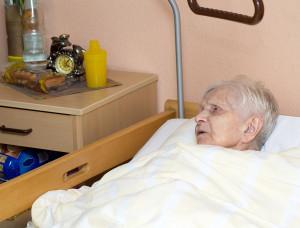How can I Tell if My Loved One is the Victim of Nursing Home Abuse or Neglect?
Accident & Injury Medical Malpractice Accident & Injury Personal Injury Accident & Injury
Summary: Nursing home abuse and negligence are a serious problem in the United States, with many observers believing that the available statistics only beginning to scratch the surface of its actual prevalence.
 As our population ages, an increasing number of older Americans will reside in nursing homes to meet their medical needs. In fact, the National Center on Elder Abuse (NCEA) reports that adults over 65 are expected to comprise a fifth of the total population by 2050.1 Nursing home abuse and negligence are a serious problem in the United States, with many observers believing that the available statistics only beginning to scratch the surface of its actual prevalence. In many cases, victims of nursing home abuse or neglect can recover for their injuries by bringing a legal claim against the facility in which they reside or resided. Nursing homes are regulated by both state and federal law, and are subject to the jurisdiction of various regulatory agencies as well.2 Any noncompliance with these regulations may be legally sufficient to justify financial recovery for victims of abuse or neglect. As a result, people who believe that they or a loved one has been abused or neglected by nursing home staff or management should discuss their options with an experienced lawyer as soon as possible.
As our population ages, an increasing number of older Americans will reside in nursing homes to meet their medical needs. In fact, the National Center on Elder Abuse (NCEA) reports that adults over 65 are expected to comprise a fifth of the total population by 2050.1 Nursing home abuse and negligence are a serious problem in the United States, with many observers believing that the available statistics only beginning to scratch the surface of its actual prevalence. In many cases, victims of nursing home abuse or neglect can recover for their injuries by bringing a legal claim against the facility in which they reside or resided. Nursing homes are regulated by both state and federal law, and are subject to the jurisdiction of various regulatory agencies as well.2 Any noncompliance with these regulations may be legally sufficient to justify financial recovery for victims of abuse or neglect. As a result, people who believe that they or a loved one has been abused or neglected by nursing home staff or management should discuss their options with an experienced lawyer as soon as possible.
Family members and loved ones are often the first line of defense
Many people who study the issue of nursing home abuse and neglect conclude that many cases go unreported for a variety of reasons. In some cases, an elder may not even be aware that the abuse is taking place or too frightened to discuss the issue with family members. As a result, it is extremely important for the loved ones and family members of nursing home residents to be aware of the signs and symptoms of nursing home abuse or neglect. Some of the most common include the following:
- Unexplained weight loss
- Infections
- Bed sores
- Unexplained injuries
- Depression
- Unsanitary living conditions
- Overmedication
- Untreated illnesses
- Bruising
- Unnecessary restraints
If nursing home abuse or neglect is suspected, the matter should be brought to the attention of management immediately. In addition, all 50 states have agencies that are responsible for the regulation and inspection of nursing home facilities, and a complaint should be filed with the appropriate agency.3 If necessary, the nursing home resident should be moved to a new facility or resident as soon as possible. Finally, victims and their families should contact an experienced Philadelphia personal injury attorney in order to determine whether they have any legal recourse.
The Levin Firm
1500 John F. Kennedy Blvd., Suite 620
Philadelphia, PA 19102
https://www.levininjuryfirm.com/philadelphia-nursing-home-abuse-lawyer/
References:
1 http://www.ncea.aoa.gov/Library/Data/
2 http://www.law.cornell.edu/uscode/text/42/1395i-3
 by
by